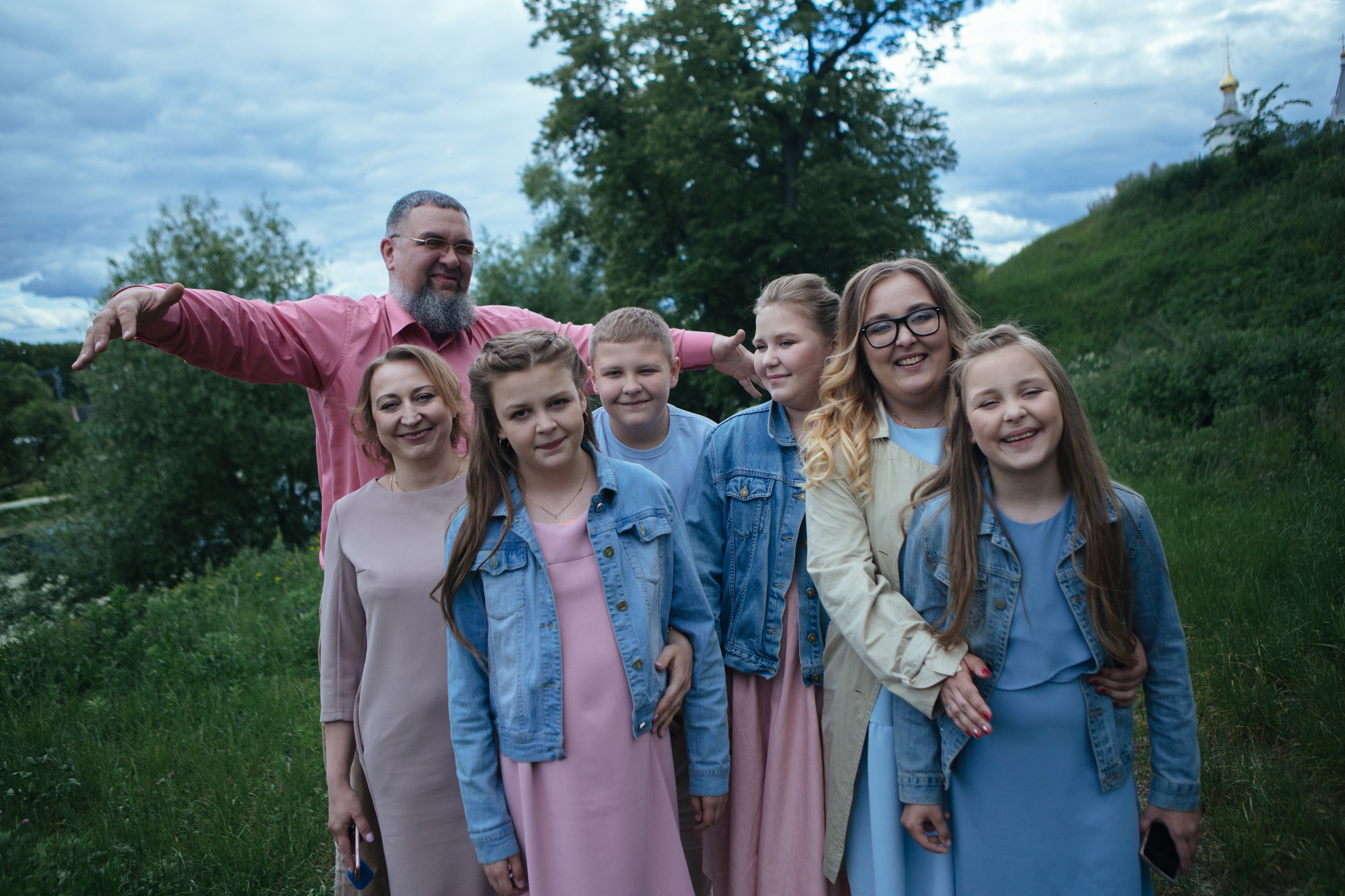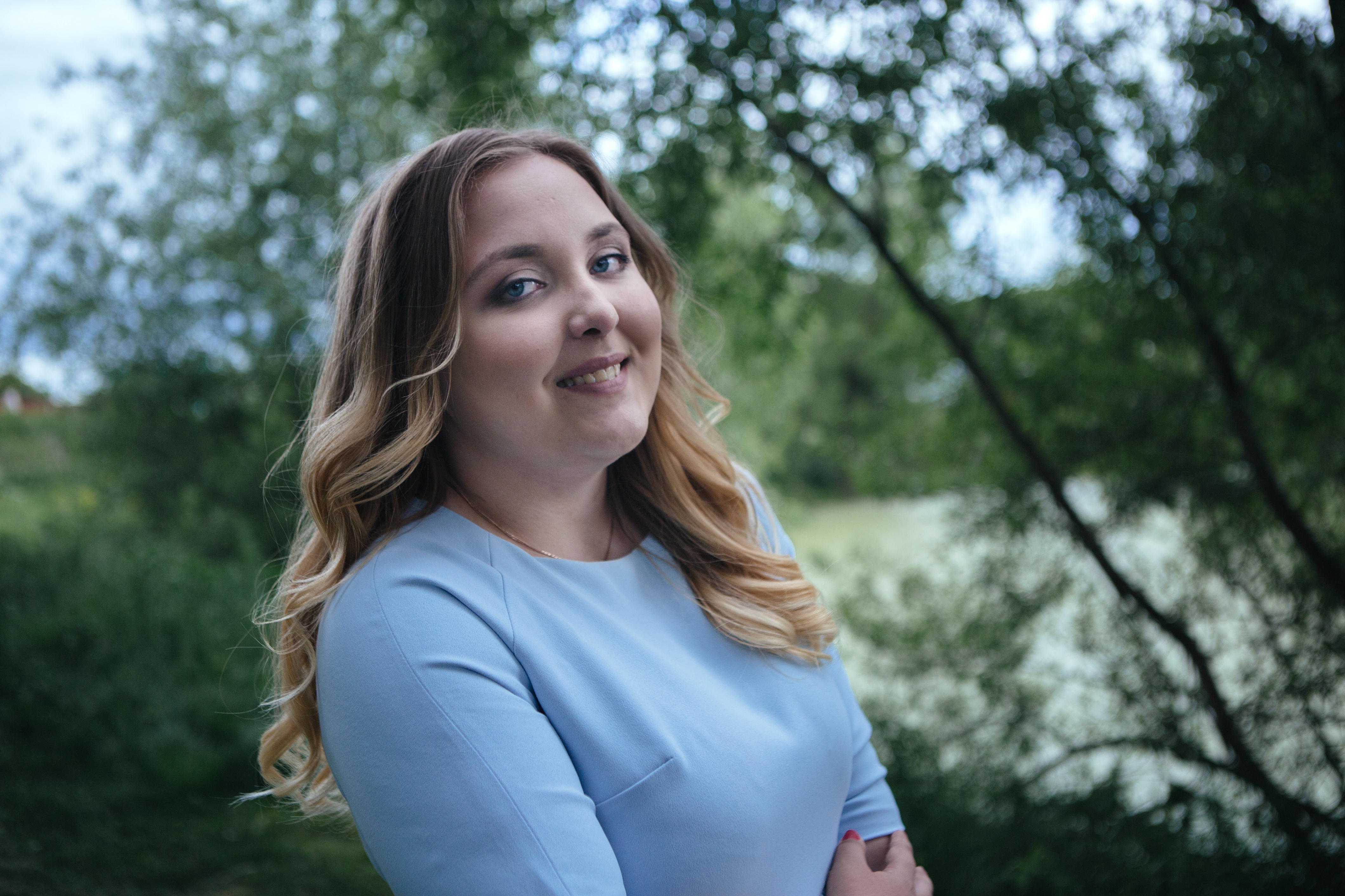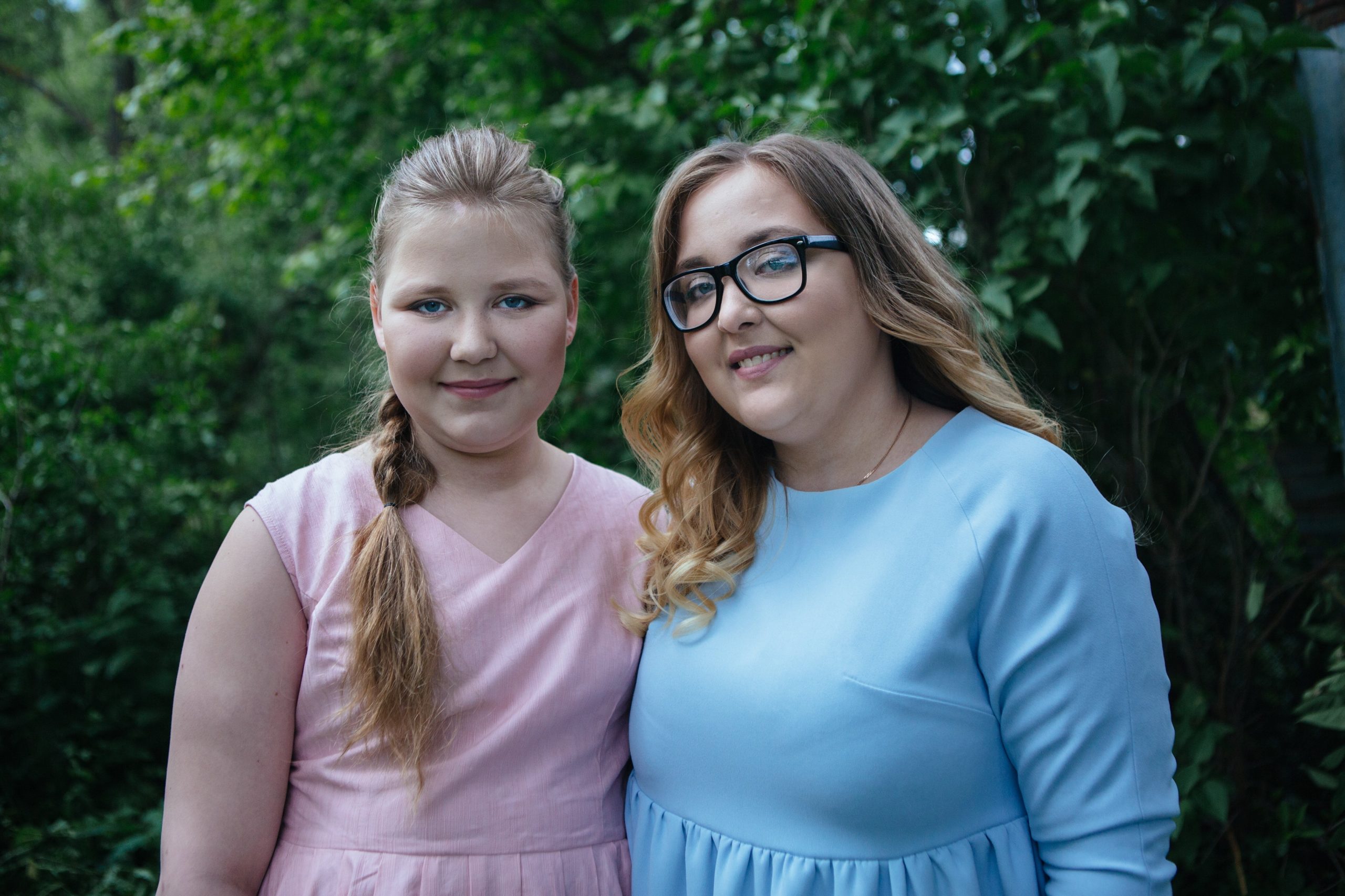This is the remarkable story of the Sorokin family from the historic village of Bogolyubovo in Vladimir Oblast. Once, Olga and Alexei only dreamt of having a single child, but since then they’ve found themselves with five: 19-year-old Anya, 13-year-old Sasha and Georgi, 12-year-old Masha and 10-year-old Sonya. The moment everything changed for them was when one day Anya was diagnosed with aplastic anaemia, one of the worst bone marrow diseases.
What do you remember about your illness and its treatment?
Anya: I don’t remember anything bad about that time in my life. For instance, I was asleep while I was getting the transplant. When I woke up, they were all, “Hey, we got it done while you were snoozing”. I told them I didn’t believe a word of it.
I try to find ways to connect with all my siblings, and not leave anybody out.
Does your sister Sasha being your bone marrow donor have any impact on your relationship?
Anya: I don’t see Sasha as my saviour. She’s my friend, my sister. Right now, she needs my support, and I often need her input on all sorts of things as well.
What about you, Sasha?
Sasha: We don’t have a big age gap, and we mostly treat each other as friends.
How are things with your other sisters and your brother?
Anya: I can talk to Sasha and Masha like adults now—the gap isn’t that big. I still have to treat Sonya as a child, though. But I try to find ways to connect with all my siblings, and not leave anybody out.

Sorokins are really attached to each other
What are your plans for the future?
Anya: This year I’ll be graduating from the Vladimir Polytechnical Institute as a lawyer. But what I want is to be a psychologist. That seems much more interesting.
How did you find out about your diagnosis?
Olga, Anya’s mother: Anya had chickenpox when she was two. She had a very hard time getting over it, and her blood cell levels were at rock bottom. They couldn’t diagnose her in Vladimir Oblast, so they sent her for examination in an ordinary Moscow hospital. That’s how we ended up in Moscow for the first time.
Did it scare you?
Olga: Nobody told us this was some kind of diagnosis of doom. The doctor’s first words were, “Now Anya needs to take these tablets and then everything will be all right.” We were allowed to go home three months later. We came back and were about to let Anya go to kindergarten again, but then during the winter, Anya came down with tonsillitis. Just like before, her blood cell levels were very low. This time we were sent to the Russian Children’s Clinical Hospital.
Anya went through course after course of treatment, but nothing gave lasting results. She’d be in remission for three months, only to have another relapse. Repeat five times over. At the time, she was the only child ever to undergo six courses.
“I’m not letting you go anywhere, not when any infection could kill her,” Alexei Maschan
Alexei, father: My daughter’s treatment took five long years. Back then, the hospital wasn’t set up to let parents stay with their children long-term. I would stay at the train station overnight, then come see Anya in hospital in the morning.
It was a mystery to us what was wrong with Anya. Physically, she was a little bundle of energy. Very active and proactive, constantly busy with something or other, running around the corridors like a thing possessed. So one time we asked Alexei Maschan to let us go home, since the girl was clearly feeling fine. “Anya’s cell levels are almost at zero”, he told us. “I’m not letting you go anywhere, not when any infection could kill her.”
When did the doctors bring up the idea of a bone marrow transplant?
Olga: After Anya’s sixth course of treatment. At first, they were thinking about an unrelated donor transplant. It would have been the first of its kind for that kind of illness.
We were already making the preparations when I found out I was pregnant. The doctor in charge of Anya said the odds of the child being compatible with Anya as a donor were one in four. Then, after the ultrasound revealed that I was going to have twins, she was optimistic because it meant the odds were up to one in two. That was when we decided to put the search for an unrelated donor on the back burner in the hope that one of our twins would do the job.

Anya Sorokina is dreaming to be a psychologist
What happened next?
Olga: The doctors recommended performing the transplant right after the birth, but it didn’t work out. We had to wait for Sasha and Georgi to grow up a little before they could donate bone marrow for their big sister. Three months later, tissue typing showed that Sasha was compatible. Then, when she was ten months old, we decided to take the risk and move forward with the operation.
How did Anya feel about the process?
Alexei: She didn’t even know what was happening. You see, she didn’t really understand that she was ill. It didn’t even occur to her. Maybe we didn’t let her know just how serious the whole thing was. She saw the hospital as just another stage in her life. The only problem was when she wasn’t allowed to go home. That upset her a lot.
Olga: She didn’t even take the transplant seriously. She slept through the whole operation. But then, after the operation, there were complications.
What happened?
Alexei: Her legs just stopped working. Turns out it was a particular kind of reaction from her body. Long story short, we had to teach her to walk from scratch. Now that was a real challenge. In the end rehabilitation took half a year, meaning that six months later, we were finally home.
How have you and your family benefited from the whole experience?
Olga: I’m confident that if it wasn’t for that experience, we wouldn’t have such a big family. We’d have stopped at one child and lived only for our own sake, the way people do in many families. But instead we have a big family, and it makes us ever so happy!
Gift of Life thanks all donors and supporters! Together we give children and young people like Anya a better chance to beat cancer.
This is a short version of the interview. Read the Russian version here.

